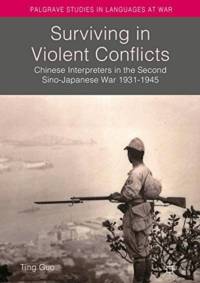Om Surviving in Violent Conflicts
This book examines the relatively little-known history of interpreting in the Second Sino-Japanese War (1931-45). Chapters within explore how Chinese interpreters were trained and deployed as an important military and political asset by competing domestic and international powers, including the Chinese Nationalist Government (Kuomingtang), the Chinese Communist Party and Japanese forces. Drawing from a wide range of sources, including archives in mainland China and Taiwan, memoirs and interviews with former military interpreters, it discusses how the interpreting profession was affected by shifts of foreign policy and how interpretersΓÇÖ professional habitus was formed through their training and interaction with other social agents and institutions. By investigating individual interpretersΓÇÖ career development and border-crossing strategies, it questions the assumption of interpreting as an exclusive profession and highlights interpretersΓÇÖ active position-taking as a strategy of self-protection, a route to power, or just a chance of a better life.
Visa mer

